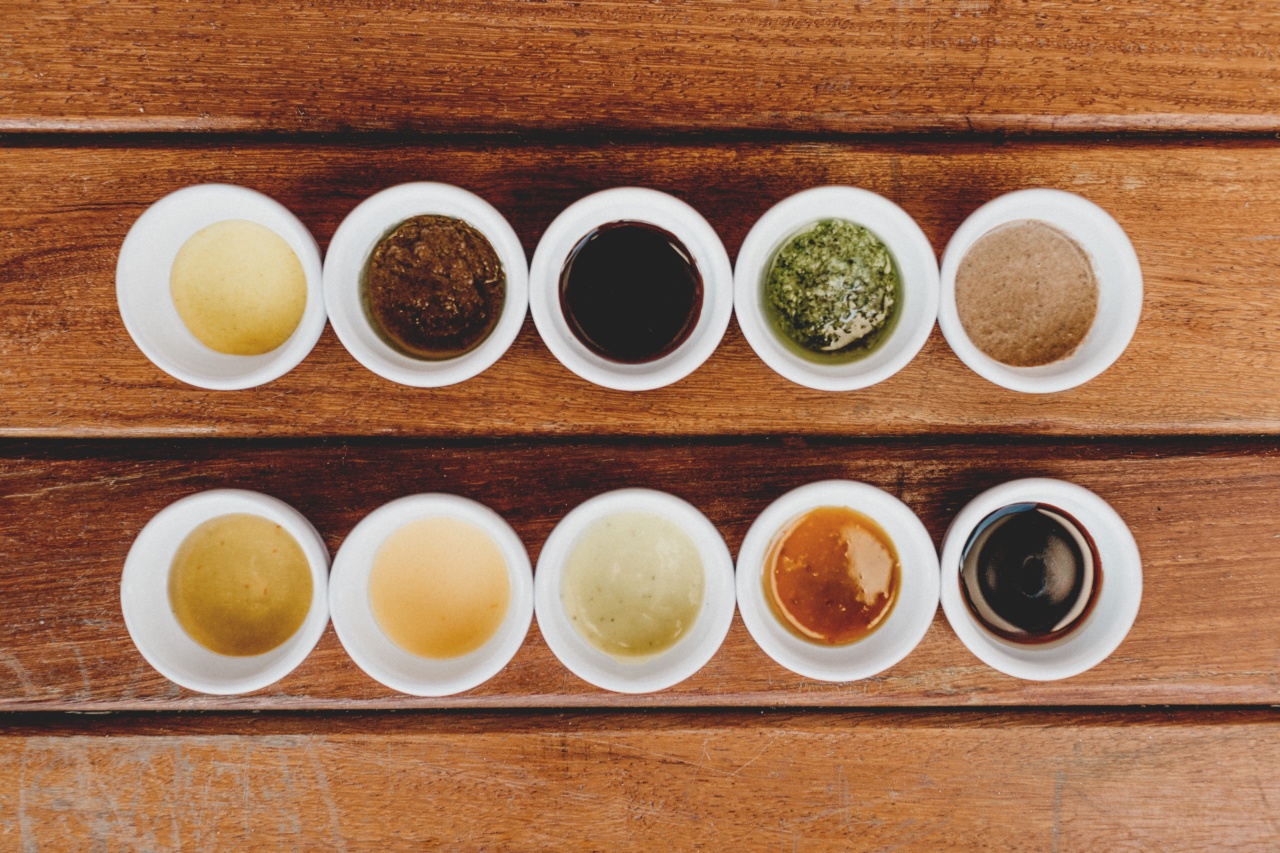When it comes to our diet, the type of fats we consume can have a significant impact on our health.
While fats are an essential macronutrient that provides energy and aids in nutrient absorption, consuming the wrong kinds of fats can increase the risk of various health conditions, including cancer. In this article, we will explore the different types of fats and how they can influence your risk of developing cancer.
The Role of Fats in Our Body
Fats are a vital component of our diet and play several important roles in the body. They are a concentrated source of energy, providing nine calories per gram.
Fats also serve as building blocks for cell membranes and help in the absorption of fat-soluble vitamins such as vitamin A, D, E, and K. Additionally, they aid in the production of hormones and play a crucial role in insulating and protecting our organs.
Saturated Fats and Cancer Risk
Saturated fats are commonly found in animal sources such as red meat, poultry, and full-fat dairy products. These fats are solid at room temperature and are known to increase LDL cholesterol levels, often referred to as “bad” cholesterol.
High levels of LDL cholesterol have been associated with an increased risk of various types of cancer, including breast, colon, and prostate cancer.
Several studies have shown a positive correlation between the consumption of diets high in saturated fats and the incidence of breast cancer.
One such study published in the International Journal of Cancer found that postmenopausal women who consumed diets rich in saturated fats had a higher risk of developing breast cancer compared to those who consumed diets rich in unsaturated fats.
Similarly, diets high in saturated fats have also been linked to an increased risk of colorectal cancer.
Research suggests that the Western-style diet, characterized by high consumption of red and processed meats, high-fat dairy products, and sugary foods, contributes to the development of colorectal cancer due to its high content of saturated fats.
Trans Fats and Cancer Risk
Trans fats, also known as trans-fatty acids, are artificial fats created through a process called hydrogenation, which solidifies liquid oils to increase their shelf life.
These fats are commonly found in processed and fried foods, commercial baked goods, and margarine. Trans fats have been shown to increase the risk of heart disease by raising LDL cholesterol levels and lowering HDL cholesterol levels, also known as “good” cholesterol.
In addition to their detrimental effects on heart health, trans fats have also been implicated in cancer development. The consumption of trans fats has been associated with an increased risk of developing breast and colorectal cancer.
A study conducted by the Harvard School of Public Health found that postmenopausal women who had a high intake of trans fats had a significantly higher risk of developing breast cancer compared to those with low intake.
Furthermore, a meta-analysis of 37 studies published in the European Journal of Nutrition indicated that high consumption of trans fats was associated with a 29% increase in the risk of colorectal cancer.
The study suggested that trans fats promote tumor growth by increasing insulin resistance and inflammation in the body.
Monounsaturated Fats and Cancer Risk
Unlike saturated and trans fats, monounsaturated fats are considered healthy fats that can actually have a protective effect against cancer. These fats are found in various plant-based sources such as avocados, olive oil, nuts, and seeds.
Diets rich in monounsaturated fats have been associated with a reduced risk of breast, prostate, and pancreatic cancer.
Studies have shown that the Mediterranean diet, which is high in monounsaturated fats, can have a significant impact on cancer prevention.
One study published in the International Journal of Cancer found that adhering to a Mediterranean diet reduced the risk of developing breast cancer in postmenopausal women by approximately 15%. Another study published in the British Journal of Cancer reported a decreased risk of prostate cancer among men who followed a diet rich in monounsaturated fats.
Polyunsaturated Fats and Cancer Risk
Polyunsaturated fats are another type of healthy fat that can help reduce the risk of cancer. These fats are primarily found in fatty fish, such as salmon and sardines, as well as in walnuts, flaxseeds, and chia seeds.
Polyunsaturated fats are rich in omega-3 and omega-6 fatty acids, which have been shown to possess anti-inflammatory properties and play a role in cancer prevention.
Several studies have indicated that omega-3 fatty acids, a type of polyunsaturated fat, may help lower the risk of certain types of cancer, including breast, colorectal, and prostate cancer.
Omega-3 fatty acids have been found to inhibit the growth of cancer cells, reduce inflammation, and promote apoptosis (cell death) in tumor cells.
On the other hand, it is important to maintain a balance between omega-3 and omega-6 fatty acids, as an excessive intake of omega-6 fatty acids may promote inflammation and contribute to cancer development.
Dietary sources of omega-6 fatty acids include vegetable oils, such as soybean and corn oil.
Conclusion
The type of fats we consume can have a profound impact on our cancer risk. Diets high in saturated and trans fats have been associated with an increased risk of various types of cancer, including breast, colorectal, and prostate cancer.
On the other hand, consuming monounsaturated and polyunsaturated fats, found in plant-based sources and fatty fish, can help reduce the risk of cancer.
Adopting a balanced and healthy diet that includes a variety of healthy fats is crucial for lowering the risk of cancer, alongside other lifestyle factors such as regular physical activity, maintaining a healthy weight, and avoiding tobacco and excessive alcohol consumption. By making informed food choices, we can take proactive steps to reduce our cancer risk and promote overall health and well-being.































